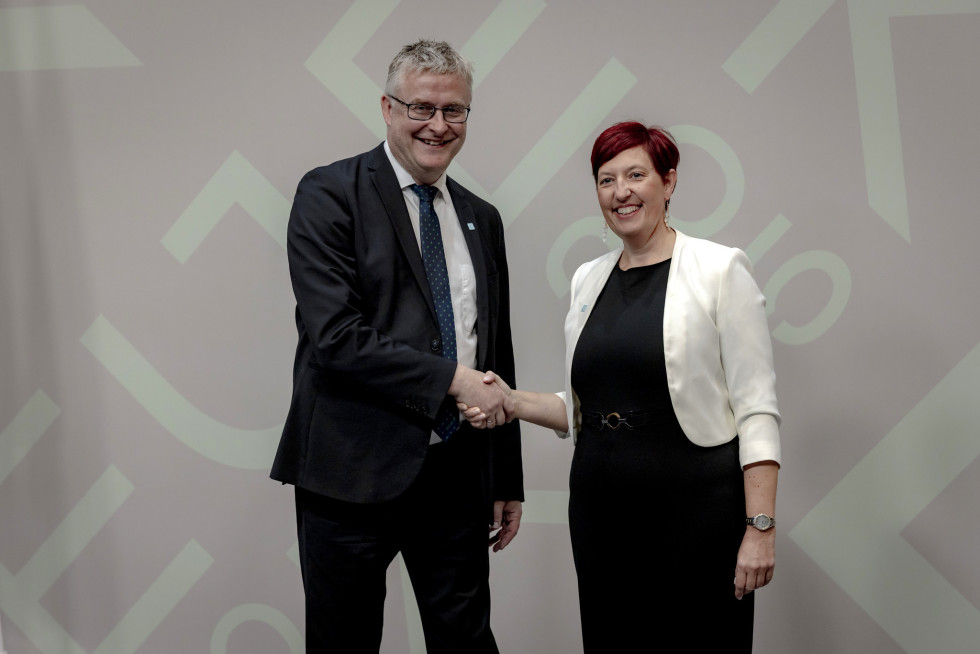Competitiveness and the green transition of the agricultural sector discussed at informal meeting of agriculture ministers

Danish Minister for Food, Agriculture and Fisheries Jacob Jansen and State Secretary Maša Žagar. | Author Dansko predsedstvo Svetu Evropske unije.
During the first two days of the informal meeting, EU ministers devoted their time to on-site visits showcasing good practices in agriculture and innovation. Among other activities, they visited one of the region's leading biotechnology companies and took part in a round table with business representatives on the topic Innovation in the agrifood sector.
The final day of the meeting was devoted to discussing on the key challenges and opportunities for strengthening competitiveness and implementing the green transition of European agriculture. Ministers focused on the topics of fostering innovation and investment in the agrifood sector and on adapting the EU's legal framework to achieve the objectives of the green transition.
In her introductory remarks, State Secretary Maša Žagar stressed that European agriculture is at a crossroads, and that it is therefore essential to combine competitiveness with sustainability and the green transition. She emphasised the need for comprehensive solutions to address economic, climate and geopolitical challenges, as well as for a fair distribution of responsibilities and costs across the entire agrifood system. She particularly emphasised the importance of innovation, partnerships between farmers and research institutions, and strong yet tailored incentives for farmers, enabling the simultaneous achievement of environmental objectives and stable production.
Furthermore, she presented concrete measures to promote innovation and the green transition, including strengthening the Agricultural Knowledge and Innovation System (AKIS), ensure more effective risk management and access to innovative forms of financing, such as microcredits, carbon farming certificates and additional payments for ecosystem services. She emphasised the need to simplify regulatory requirements and to establish clear and transparent rules, enabling farmers to apply sustainable practices and innovative technologies while safeguarding the competitiveness and stability of farms.
In conclusion, the State Secretary stressed that the future of European agriculture depends on cooperation and coordinated action by all stakeholders, which will enable the successful implementation of the green transition and accelerate technological progress.

